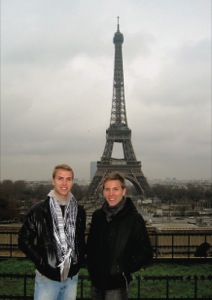
2011/2012 has seen much movement in terms of equal rights for the LGBT community. We have a president who openly supports marriage equality, we have had Don’t Ask, Don’t Tell repealed and we have had any number of other small victories in the fight for equality, but … and this is a very big but … hatred and bigotry still exist on a foundational level. We’re talking about a hatred that is so intense, it does not care for love, feelings, personality, emotion or even humanity. It is a hatred that is so intense all it wants to do is erase with no conscience or feeling whatsoever.
San Diego LGBT Weekly was privileged to conduct an interview with Shane Bitney Crone, who experienced a tragic end of a fairytale life, and who will be a top honoree at Sunday’s Nicky Awards for his storytelling efforts to affect change in America.
Shane and Tom had been together six years. Shane was from Montana and Tom was from Indiana. They had a home together and a business and had traveled the world. They loved each other. They wanted to get married as soon as it was legal to do so in California. The next logical step, in their minds, was to share this wonderful news with their families. So, five years ago, Shane and Tom went home and came out to their respective families. Shane’s family has happy. Happy that Shane had found the love of his life and wanted to settle down. Tom’s family was outraged. His father threatened him and physically attacked him. His mother blamed Shane for making him gay and told Tom that he should have told them earlier because then they could have gotten him medical help. Tom left Indiana and came back to the home he shared with Shane in California. May 7, 2011 Tom fell from a rooftop and died. Following his death Tom’s family closed ranks and under threat did not allow Shane to play any part in his obituary or funeral. Because they were not married, Shane had no rights, officially did not exist as far as Tom was concerned and was to all intents and purposes rendered insignificant.
In Shane’s own words, “No one will listen if I don’t talk.”
This is Shane’s story.
San Diego LGBT Weekly: Shane, How did you meet Tom?
Shane Bitney Crone: Tom and I were introduced by a mutual friend not long after I moved to Los Angeles. Without saying she was matchmaking, she invited Tom and me to go bowling. Within minutes of meeting him, I knew that Tom was someone that I could see myself with. Tom seemed to be good at everything he did, annoyingly good. He was a much better bowler than I was and he was extremely confident, almost cocky. He had a level of energy that just seemed to pull people toward him.
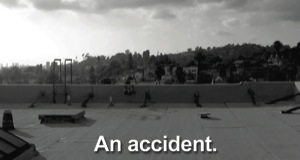
What made you decide to come out to your families?
Tom and I felt strongly that there was no need to come out to our families until we found someone that we planned on spending the rest of our lives with. Needless to say, it wasn’t too long after meeting him that I came out to my family. Fortunately, they were very supportive. My family absolutely loved Tom. I used to joke that they loved him more than they love me.
Did you expect the reactions you got?
I assumed my family had an inclination that I was gay because I was so different from other boys growing up. After I came out to my family, I encouraged Tom to do the same thing. Tom was visiting Indiana for the Christmas holidays and his parents were outraged. They blamed me for making Tom gay and told him that he should’ve told them sooner so they could’ve gotten him medical treatment. Tom didn’t think his parents were going to be outraged, but he did tell me that he knew they wouldn’t take it too well.
How did you guys decide to deal with the polarized reactions from your families?
Tom quickly returned to Los Angeles and told me he didn’t think he’d ever have a reason to return home again. I just tried to support him. Tom never allowed anyone or anything to bring him down and keep him down for very long. His ability to see the bright side, his courage to concentrate on the future was incredible.
I know this is a tough question, Shane, but in your own words describe the circumstances around Tom’s death and how you found out?
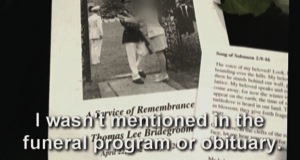
May 7, 2011 was just a normal Saturday for Tom and me. We decided to do separate things. He went over to our best friend’s apartment building to take photos. Our friend has an incredible view of downtown Los Angeles and we had done several photo shoots on her roof. Tom and I were texting each other and he told me they were going up on the roof to take pictures. I was always the overly paranoid and cautious one in our relationship, so I made sure to tell him he needed to be careful. He assured me he would be cautious and it wasn’t even fifteen minutes later that our friend contacted me with the news that he had fallen. I rushed to the emergency room, not knowing just how bad it was until I got there.
What made you relent to Tom’s mother’s requests?
Although Tom’s mother reacted badly to Tom when he came out, she eventually came to visit us in L.A. She never apologized, but we felt her visits were her way of accepting us. I don’t know what it’s like to lose a child and I want to respect the fact that she lost her son. Yes, Tom and I owned a home, started a business, and adopted a dog together, but we never took the necessary legal steps to protect ourselves from the unexpected. Even if I had tried to control the situation, I had no legal rights to do so. I was in a state of shock. I never imagined that I would lose Tom, but looking back I wish we had taken the proper legal steps that would’ve made it possible for me to honor Tom’s final wishes.
What were the circumstances surrounding Tom’s funeral?
I had every intention of attending Tom’s funeral service. My mother, best friend and I were on our way to Indiana. During a layover, I received a phone call from one of Tom’s relatives informing me that if I showed my face in their town I would be attacked. Fearing for our safety, we decided to stay away and I was never allowed to properly say goodbye. I had a celebration of life service for Tom in Los Angeles a month later. I made sure it was a service that was true to who Tom was. It turned out really well.
Why did you go back to Indiana after Tom’s funeral?
One of Tom’s best friends from high school invited me to her wedding. It was a great way to see all of his high school friends, as well as an opportunity to visit Tom’s final resting place. I think the fact that I wasn’t allowed to attend Tom’s burial, sometimes makes it hard for me to believe that he’s really gone and this is my new life, my new reality. Visiting his gravesite is one of the most difficult things I’ve ever done, but I just had to remind myself that it’s just Tom’s body. I will always have the memories we shared and no one can take those away from me.
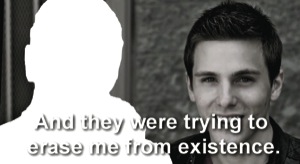
What have you got to say to Tom’s parents and family?
The best way to honor Tom’s memory is to allow him to be in death the way he was never allowed to be in life – himself. And to the family members who have been loving and supportive of Tom’s and my relationship, I want to say thank you from the bottom of my heart. Your kindness and sympathy have meant more than you will ever know.
What advice would you give to a young gay couple in a similar situation today?
I implore you to have the hard conversation about your own immortality – to face the hypothetical consequences of what could happen were either of you to be injured or possibly die. I am not an attorney and every state is different but see a lawyer, get a will and get your ducks in a row. In other words leave nothing to chance. Unfortunately, you cannot always rely on the goodwill of family members or friends who were previously well-intended. Make sure everything is documented.
What do you think will make a difference today?
Enough is enough. We’ve been talking about this for a long while. Our rights are guaranteed to us in the Constitution. The truth is it has always been our right to be who we are and love who we love. It’s time that everyone had equal rights.
After your YouTube video, you partnered with Linda Bloodworth Thomason to make a documentary entitled, Bridegroom, An American Love Story. What do you hope to accomplish with this?
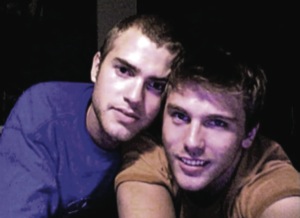
Our hope is that Bridegroom will become a seminal film in the quest for human rights. Our documentary is not just about marriage equality but something much larger than that – the right of all people to be who they are and love who they love. We plan on premiering this film in late fall. Hopefully it will change hearts and minds in a way that no law or lecture ever could.
Finally, how do you feel about being the 2012 recipient of the Harvey Milk Civil Rights Award at the Nickys?
I am incredibly honored to receive an award named after Harvey Milk. For me, Harvey is a hero and a role model for all generations, gay or straight. I hope in my own life, as a gay man and as a human being, that I can demonstrate even a fraction of his character and courage.
Shane, thank you so much for talking to us. Our hearts go out to you. We hope that by publishing your story it will make a difference to the lives of many LGBT people out there. Shane, we are listening, we believe our readers are listening and we will do everything in our power to make sure everybody is listening. Thank you.











